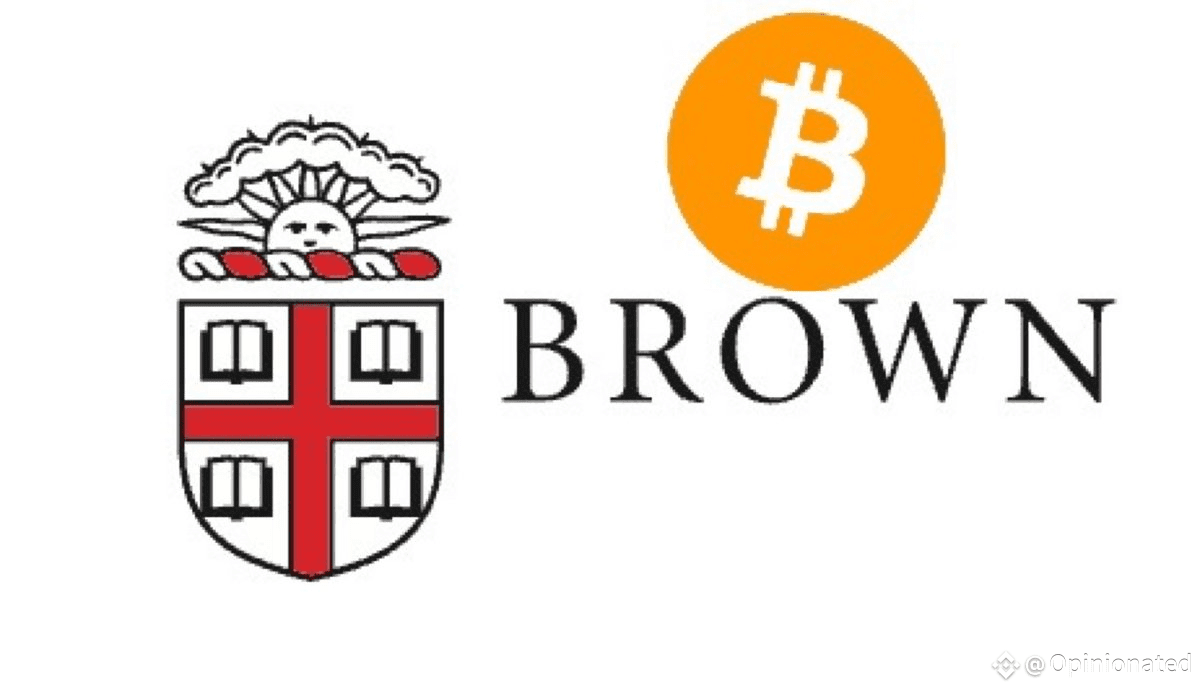Brown University Doubles Bitcoin Exposure via BlackRock ETF
Brown University, an Ivy League institution, has significantly increased its Bitcoin holdings by doubling its stake in BlackRock’s iShares Bitcoin Trust (ticker: IBIT). The university now holds approximately $13 million worth of shares, adding around $6.5 million recently. This move reflects growing institutional interest and confidence in Bitcoin as a long-term asset. BlackRock’s Bitcoin ETF provides a regulated, accessible way for institutions and investors to gain exposure to Bitcoin without direct ownership, signaling ongoing mainstream adoption.

BlackRock Clarifies No Plans for XRP or Solana ETFs
Amid speculation that BlackRock might expand its cryptocurrency ETF offerings beyond Bitcoin, the asset manager has confirmed it currently has no plans to file for exchange-traded funds tracking XRP or Solana (SOL). While the firm remains focused on Bitcoin ETFs, this statement highlights the cautious and selective approach large traditional asset managers are taking toward digital assets, emphasizing regulatory considerations and market demand.
Circle Mints Over $1 Billion in USDC Stablecoin
Blockchain analytics platform Whale Alert recorded Circle Internet Financial minting approximately 1.09 billion new USDC tokens on August 8, 2025, mostly on the Solana network. Shortly after, Circle burned around 75 million USDC, leaving a net issuance of about $1.01 billion for the day. Such large-scale minting and burning of stablecoins typically correspond to liquidity management activities, including fulfilling institutional redemptions or providing liquidity to exchanges. This activity underscores the ongoing importance of stablecoins in crypto markets as key instruments for trading, settlement, and hedging.
China Enforces Stablecoin Promotion Ban Amid Regulatory Cooling
In a move to curb speculative activity and maintain financial stability, Chinese regulators have instructed domestic securities brokers and research bodies to halt all promotional efforts and reports related to stablecoins. This ban aims to reduce retail investor exposure to dollar-pegged tokens, which have grown rapidly in popularity. The measure marks part of China’s broader cautious stance on crypto, contrasting with Hong Kong’s more open licensing framework aimed at attracting stablecoin issuers. The duration of the ban remains unspecified, reflecting the evolving nature of crypto regulations in the region.
Key Takeaways and Outlook:
Institutional interest in crypto continues to strengthen, as seen in Brown University’s sizable Bitcoin ETF purchase.
Traditional finance giants like BlackRock are methodically expanding crypto exposure, but remain cautious about diversifying beyond Bitcoin for now.
Stablecoins remain integral to the crypto ecosystem, with active treasury management reflecting ongoing demand and market dynamics.
Regulatory approaches vary globally, with China tightening restrictions to mitigate risks, while other jurisdictions explore frameworks to integrate crypto more fully.
Investors should watch for how these developments influence liquidity, market sentiment, and regulatory clarity — all of which will shape the trajectory of crypto assets in the near term.
